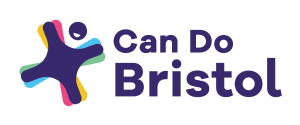Why we need you
The Education Rights Helpline provides impartial, confidential information, advice and support on education rights and entitlements for parents and carers of autistic children and young people.
The information is provided primarily via a telephone-based service frequently backed up by email and written communication. Volunteers provide this from their own homes.
hat you will be doing
You will be:
- Calling parents and carers of children on the autism spectrum, and young autistic people who have contacted the Education Rights Helpline
- Offering accurate and up to date information on education legislation, regulations and guidance
- Helping parents to get appropriate provision for their child and providing information on relevant issues
- Carrying out case work which may include gathering, reading and analysing documents and carrying out research
- Helping parents, carers and young autistic people to prepare for meetings, and providing feedback to them on draft letters and forms
- Recording details of interactions with parents on the Education Rights Helpline database and keeping accurate records
- Dealing appropriately with confidential information and documentation in line with the service’s policies.
Some occasional travel to attend training and forums will be necessary.
Minimum commitment: 1 year of active volunteering to provide stability and consistency to the support we offer
Skills, experience and qualities useful for the role (but not essential)
Skills and experience
You will need to:
- Be a good communicator, both verbally and in writing, as the role involves providing (often complex) information to parents, carers and young autistic people
- Have excellent telephone, negotiation and problem-solving skills
- Be able to self motivate and use your own initiative
- Organise, prioritise and manage your own time
- Have a positive and flexible approach to time volunteering
- Be able to deal with people at all levels, using tact and diplomacy
- Be able to remain calm, even in stressful situations
- Be reliable, consistent and dependable
Knowledge of education law and autism would be desirable, but not essential, as is previous experience of handling confidential documentation
When and where
Location: England, home based
Training dates: Weekend training will take place in London during February 2023
Time: Four hours per week. You can choose when to make calls and you can spread the hours across one or more days around your other commitments.
Before you begin volunteering you will be asked to complete 8 distance-learning modules, spread over approximately 18 weeks and involving approximately 40 hours work in total.
During the modular training, you will be required to attend three online meetings of approximately 90 minutes to consolidate training.
Support
Regular support and supervision from your volunteer manager
What you could get out of it
As a volunteer, you will be joining a team who give invaluable and often life-changing free advice to families, helping to ensure that autistic children and young people have a greater opportunity to receive the support they need and deserve. Other benefits include:
- Excellent initial and ongoing training
- Reimbursement of all out-of-pocket expenses (agreed by coordinator)
- References provided after 1 year of active volunteering
- Access to free e-learning
- Regular feedback and recognition
100% of families say that the information and advice they received from the Education Rights Service helped. This is typical of the feedback we receive from families:
“I was totally overwhelmed with the process and dealing with lots of people. I felt I had a guide to help me. I felt less alone more empowered and able to act. Thank you!”
100% of surveyed volunteers say they enjoy volunteering.
“It is wonderful to feel that you have played a part in securing an assessment or school provision which may change a child's whole future.”
“I feel that I helped many people and I feel I have the right knowledge to do that.”
We seek applications from anyone interested in the role, but particularly welcome applications from those on the autism spectrum.
Whilst we are able to make reasonable adjustments for volunteers you will need to be able to volunteer independently as we are not able to offer one to one support.



